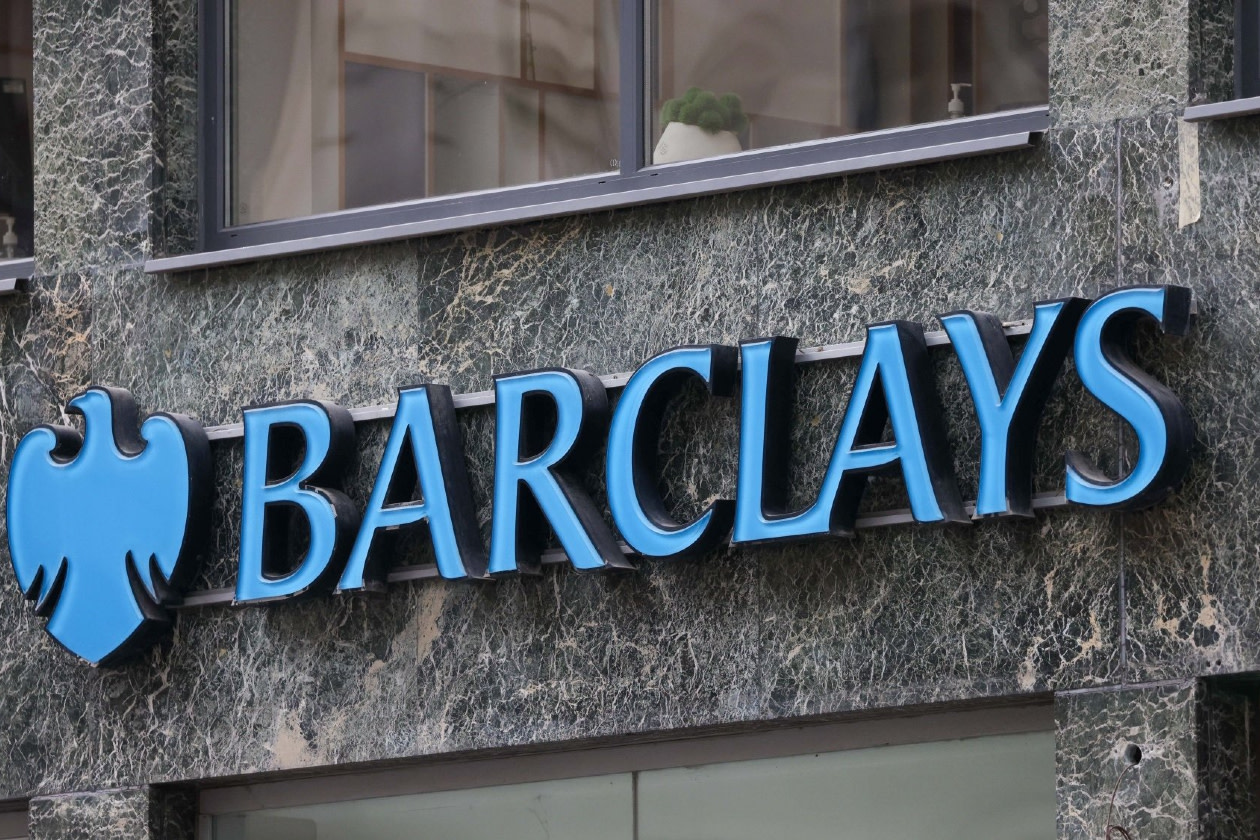Barclays reported a 14% rise in second quarter total income to £7.2bn (£7.0bn expected). Performance was positive across divisions, with the UK and Investment Bank showing strong growth.
Profit before tax rose 28% to £2.5bn (£2.2bn expected), as income growth outpaced a 5% rise in operating costs. Credit impairment charges rose from £384mn to £469mn, but came in lower than expected and default rates remains low and stable.
The CET1 ratio, a key measure of capital levels, ended the period at 14.0% (target range 13-14%). A 3.0p half-year dividend was announced, alongside a £1bn buyback .
There was no change to full year guidance, which points to net interest income of £12.5bn.
The shares were down 1.3% in early trading.
Our view
Barclays delivered a strong earnings beat, driven by its investment banking division that’s thriving in today’s volatility, mirroring the strength of US peers. Stable US credit card delinquencies and gains in fixed income and equities trading bolstered performance. But conservative capital returns were a slight disappointment on the day.
There are a few moving parts to operations, but looking at more traditional interest income streams, the environment still looks promising. The UK arm generates over half of all interest income, so improving trends at home have been positive.
Specifically, the shift from savers to longer term and less profitable accounts has slowed, the mortgage market is making a recovery, and the structural hedge has been an ongoing source of interest income growth (essentially a bond portfolio that should yield higher returns as older contracts mature).
But Barclays is a well-diversified business, and the UK's just one part. It's also one of the largest global investment banks and has a sizeable US credit card business.
Higher rates along with increased US credit card balances, have been a tailwind, but it can be a double-edged sword. It’s higher risk, and returns haven’t been as strong as other parts of the business. Still, for now at least, fears that US card default rates would start to rise haven’t come to pass. This remains an area to watch over the coming quarters.
The large investment bank (>50% of group profit before tax) is one of Barclays’ key differentiators and a driving force behind new medium-term targets. The diverse range of income streams is a benefit when economic conditions are uncertain, and volatile markets have acted as a tailwind over the last couple of quarters. It remains to be seen whether this can be an ongoing trend, management is confident, but this is a key debate.
The balance sheet is well capitalised, and while we expected to see management hold on to a healthy buffer there are questions about whether it could be more adventurous. This is a theme we’re seeing across the sector, and Barclays’ plan to return £10bn over 2024-26 looks pretty comfortable.
Barclays has seen a material re-rating over the past couple of years. We think much of that is justified and see both near and long-term upside. But we’d like to see more proof that the revamped investment bank can compete with US peers in a range of conditions before getting too excited.
Environmental, social, and governance (ESG) risk
The financials sector is medium-risk in terms of ESG. Product governance is the largest risk for most companies, especially those in the US and Europe with enhanced regulatory scrutiny. Data privacy and security is also an increasingly important risk for banks and diversified financial firms. Business ethics, ESG integration and labour relations are also worth monitoring.
According to Sustainalytics, Barclays’ overall management of material ESG issues is strong.
Barclays has some room for improvement regarding customer data privacy and environmental commitments. Despite strong policies overall, investigations are ongoing about alleged currency manipulation, and its data security could use strengthening with more frequent risk assessments and external audits. The quality of its environmental policy has deteriorated, with limited commitments to reducing emissions.
Barclays key facts
All ratios are sourced from LSEG Datastream, based on previous day’s closing values. Please remember yields are variable and not a reliable indicator of future income. Keep in mind key figures shouldn’t be looked at on their own – it’s important to understand the big picture.
This article is not advice or a recommendation to buy, sell or hold any investment.No view is given on the present or future value or price of any investment, and investors should form their own view on any proposed investment.This article has not been prepared in accordance with legal requirements designed to promote the independence of investment research and is considered a marketing communication.Non - independent research is not subject to FCA rules prohibiting dealing ahead of research, however HL has put controls in place(including dealing restrictions, physical and information barriers) to manage potential conflicts of interest presented by such dealing.Please see our full non - independent research disclosure for more information.


